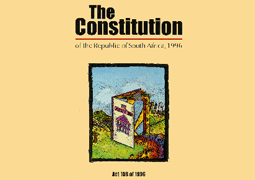
The dispossession of land lies at the heart of our national building. We must put aside our vested interest and put the interest of all South African, black and white, first. This is a legacy challenge created by people who are no more, said Dr Mathole Motshekga, chairperson of the Ad Hoc Committee to Initiate and Introduce Legislation Amending Section 25 of the Constitution.
The committee yesterday held a workshop to gather insights from experts and stakeholders on how to draft the Bill that will make it possible to amend the Constitution to allow for the expropriation of land without compensation. Dr Motshekga made it clear on various occasions that differences should be set aside and the interest of South Africans should be put aside.
The committee was mandated by the National Assembly to initiate and introduce legislation amending section 25 of the Constitution and have regard to the work done and recommendations as contained in the reports of the Constitutional Review Committee and the previous Ad Hoc Committee on Amendment of section 25 of the Constitution.
Adv Charmaine van der Merwe, from Parliament Legal Services, said the committee should make explicit that which is implicit in the Constitution, namely that “expropriation of land without compensation is a legitimate option for land reform”. She acknowledged that during previous processes there were differing views. All will be taken into account when drafting bill.
One view on the matter is that subsection 3 deals with just and equitable compensation and thus allows for flexibility (compensation need not be market-related). It is therefore not necessary to amend section 25. However, the mandate of the committee requires that what is implicit must be made explicit.
She presented two ways in which the Constitution could be amended. Option one is to amend subsections (2)(b) and (3)(b), subject to compensation, the amount of which and the time and manner of payment of which have either been agreed to by those affected or decided or approved by a court, provided that a court may determine that no compensation is payable in the event of expropriation of land for the purpose of land reform.
Where compensation is payable, the amount of the compensation and the time and manner of payment must be just and equitable, reflecting an equitable balance between the public interest and the interests of those affected, having regard to all relevant circumstances.
Option two includes inserting a new subsection: “Notwithstanding the requirement for compensation contemplated in subsections (2), (3) and (4), land may be expropriated without the payment of any compensation as a legitimate option for land reform in order to redress the results of past racial discrimination.”
During the discussions, some argued that the cut-off date of 1913 for land expropriation should be removed from the Constitution, as it defeats the purpose of land redistribution.
Mr Floyd Shivambu, a Member of Parliament (MP) for the Economic Freedom Fighters, said both the British and Afrikaners can be blamed for the situation that South Africans find themselves in. Another MP, Ms Annette Steyn of the Democratic Alliance wanted to know how “property” could be disconnected from “land” in such an amendment. The committee will deliberate on the issues next week and is expected to be presented with a draft Bill on 27 November 2019.
Rajaa Azzakani
7 November 2019

